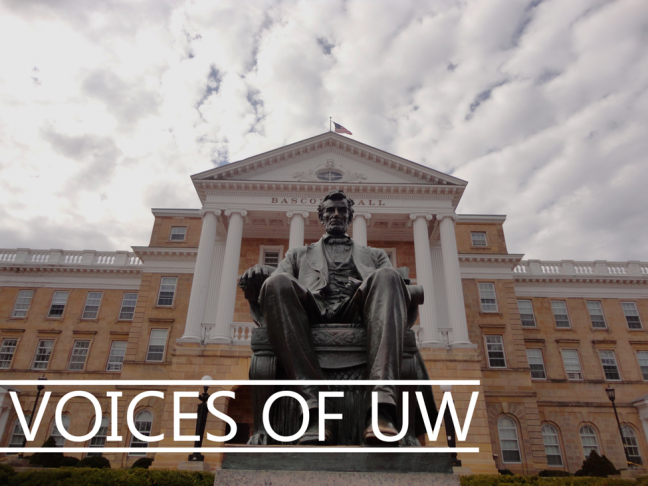To the editor:
Recently I read Nathaniel Olson’s column in which he claims both presidential candidates struggle to relate to ordinary citizens. I agree with his point that voters feel a strong connection with Clinton, but some other arguments he made don’t sit well with me.
My main concern with his article is he seems to be promoting the idea that our presidential leaders should be “average.” He seems to be taking a position that our presidential leaders should identify with the layman in every way and that the current candidates can’t because “[President Barack] Obama is the ivory tower intellectual and Mitt [Romney] is the cold capitalist” and because “They have attended elite institutions, held major offices and kept themselves in excellent physical condition.” This reminds me of something people were saying about George W. Bush back in 2000 or 2004 – they felt they would be able to have a beer with him. Well, I disagree with this mentality – I would not want an average person in the oval office. I would never expect the average person to be able to have a beer with the president in the same way they would with their buddy. I am not trying to straw-man Nathaniel’s article here. What I’m trying to say is only exceptional people should be expected to win the presidency. This might make them less identifiable with the average voter, but I would not want the average voter running our country.
That brings me to my next concern about the column. I am quite convinced Mitt Romney can’t relate to ordinary American citizens because he was born into wealth – his father was chairman and president of American Motors Corporation – and has made a fortune off of saddling failing companies with huge amounts of debt. I do not only think he cannot relate to the average citizen. I think he holds the average American citizen in contempt. How else could he have been so content with bankrupting companies, killing jobs and moving his money offshore?
However, I am not convinced Barack Obama is so distanced from the struggles of the average American. As far as my understanding goes, President Obama was not born into wealth. In fact, he was largely raised by a single mother while being moved around the country. He earned his degrees from elite institutions and gained his way into prominent offices on merit. His campaign has strong grassroots support. His stances on providing health care coverage for millions of poor, uninsured Americans, investing in higher education and investing in the middle class show that even if he does not understand everything about the life of the average citizen, he does have a good grasp of many of their primary concerns. Given all this, I see very little evidence in support of the idea Obama cannot relate to the problems of ordinary citizens.
Finally, the point of the paragraph describing the leadership at Madison was lost on me. It was inconsistent with the rest of the column. Our elite quarterbacks represent above-average physical ability and incredibly hard work. Similarly, our prominent administrators and our celebrated alumni represent intellectual prowess and extreme diligence. These are traits we can look up to and from which we can learn. People look at such figures as inspiration to achieve their goals. However, Nathaniel’s column seems to suggest these traits are undesirable in a leader because their followers cannot identify with them. This is where I am in complete disagreement.
I appreciated Nathaniel’s column for its insight into alternate viewpoints and hope that you have found my comments equally thought-provoking. I look forward to hearing more thoughts on what makes somebody a good leader and whether these candidates really understand the problems facing average citizens.
David Gedymin ([email protected]) is a senior majoring in chemical engineering with a business certificate.











